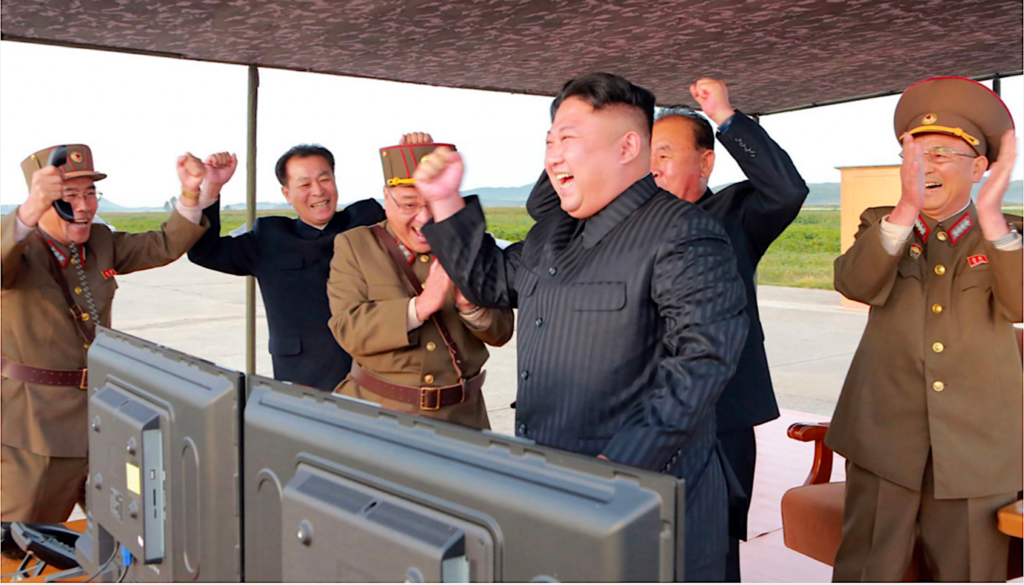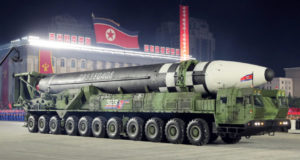North Korean hackers have carried out a crypto heist, stealing more than €1.6 billion worth of cryptocurrencies. The heist is one of the largest crypto heists in history and involved the theft of funds from a South Korean crypto exchange. In 2021, a total of €400 million was stolen in another North Korean crypto heist. The hackers used a sophisticated technique called a “spear phishing” attack, in which targeted emails are sent to specific employees of the exchange to gain access to their computers and steal the funds.
In 2022, the Federal Bureau of Investigation was able to confirm that Lazarus Group (1) and APT38, cyber actors linked to the Democratic People’s Republic of Korea (DPRK), were responsible for the theft of USD 620 million worth of Ethereum reported that year.
North Korea is known for using cyberattacks to fund its regime, and this heist is just one example of the country’s efforts to use cryptocurrency to circumvent sanctions and generate revenue. The stolen funds were quickly laundered through various crypto exchanges to avoid detection, but authorities were able to track down and freeze some of the funds.
The heist underscores the need for stronger security measures in the crypto industry and the importance of regulatory oversight to prevent illicit activity. North Korea’s use of cyberattacks to fund its regime is a major concern for international security, and countries must work together to prevent such activity.
The North Korean crypto heist is just one example of the growing threat of cybercrime, which is increasingly sophisticated and difficult to detect. North Korean hackers are sent to Shenyang, China, for special training. They are trained to install malware of all kinds on computers, computer networks and servers. Domestically, there are Kim Chaek University of Technology, Kim Il-sung University and Moranbong University, which select the best students from all over the country and offer them six years of specialised training.

As the use of cryptocurrencies continues to grow, it is important for individuals and businesses to take steps to protect their assets and prevent unauthorised access. Governments around the world are also taking steps to regulate the crypto industry and prevent illegal activity, but more needs to be done to ensure the security and stability of the market. Overall, the North Korean crypto heist is a stark reminder of the importance of cybersecurity and the need for vigilance in the rapidly evolving world of cryptocurrency.
It has long been known that North Korea is working to develop nuclear weapons despite international sanctions and condemnations. Recent reports suggest that the regime is using stolen cyber money to fund its nuclear programme.
Experts believe that the regime also uses these ill-gotten funds to support other military activities.
In this way, North Korea can bypass the traditional financial institutions that are subject to international sanctions and obtain the funds it needs to further develop its weapons. It also allows the regime to deny its nuclear programme to a certain extent, as it can claim that the money comes from other sources.

North Korea’s nuclear weapons programme poses a significant threat to global security, and the use of stolen cyber money to fund this programme only exacerbates this threat. The international community must take action to prevent the regime from acquiring the resources it needs to develop these weapons, including through cyberattacks.
This may include tightening sanctions on North Korea and stepping up efforts to track and disrupt its cyber operations. It may also include diplomatic efforts to engage with the regime and encourage it to fully abandon its nuclear weapons programme.
Despite international sanctions and condemnations, North Korea has continued to pursue its nuclear ambitions, claiming that it needs nuclear weapons to deter the US and its allies from an imminent invasion.
North Korea has conducted numerous missile tests in recent years, that have caused concern and condemnation in the international community. The regime has tested a variety of missiles, including short- and medium-range missiles and intercontinental ballistic missiles (ICBMs).
Experts believe that North Korea currently has about 30-60 nuclear weapons, although it is unclear how many of these weapons are operational. The regime has also made progress in developing miniaturised warheads that can be mounted on ballistic missiles.
North Korea’s missile programme is also believed to give the regime the ability to strike its enemies, including South Korea, Japan and the United States. The regime has also claimed that its missiles are designed to deter a possible attack by its enemies.
| LAZARUS GROUP
The Lazarus Group is a cybercrime group consisting of an unknown number of individuals controlled by the government of North Korea. Numerous cyberattacks have been attributed to it between 2010 and 2021. The Lazarus Group has close ties to the North Korean state. According to the United States Federal Bureau of Investigation, the Lazarus Group is a North Korean “state-sponsored hacking organisation”. According to North Korean defector Kim Kuk-song, the organization is known domestically as the 414 Liaison Office.

Park Jin Hyok is allegedly a North Korean state-sponsored computer programmer. He is also alleged to have been involved in a wide-ranging criminal conspiracy carried out by a group of hackers from North Korea’s General Bureau of Intelligence (RGB). The conspiracy involved North Korean hacker groups referred to by some private cybersecurity researchers as the “Lazarus Group” and Advanced Persistent Threat 38 (APT38).

